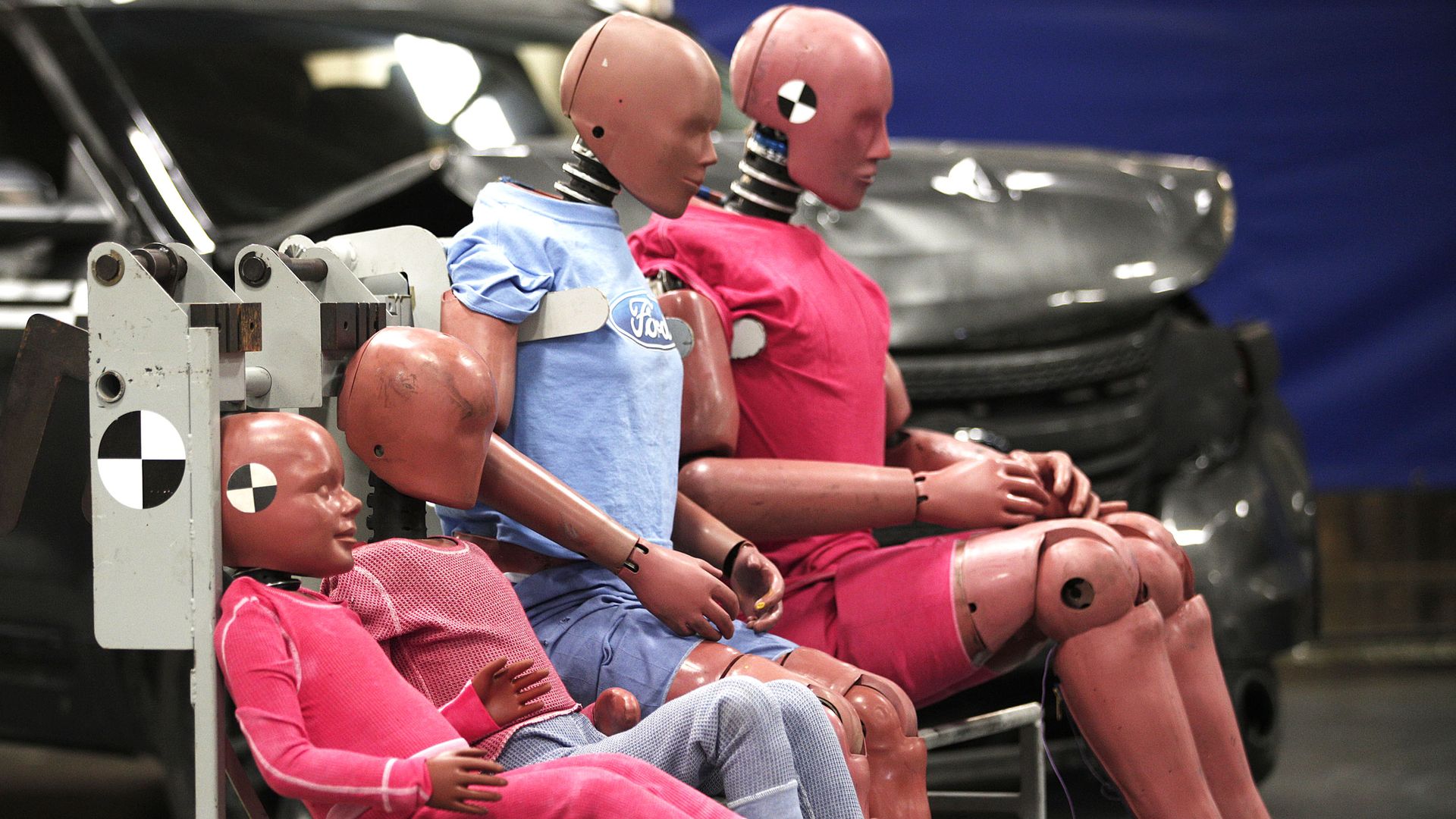Nov 28, 2018 - Technology
Expert VoicesHow updated standards for new cars could boost the AV industry
Add Axios as your preferred source to
see more of our stories on Google.

A family of crash test dummies at Ford's Dearborn Development Center. Photo: Bill Pugliano/Getty Images
